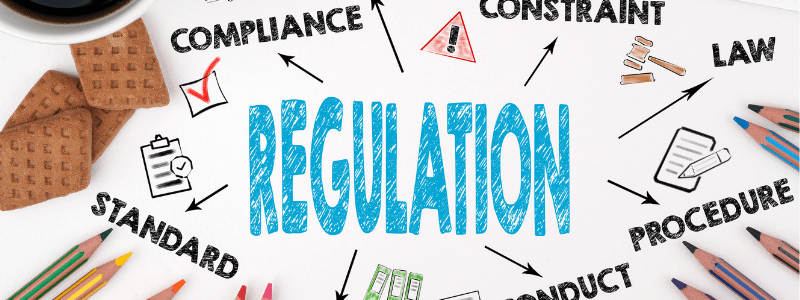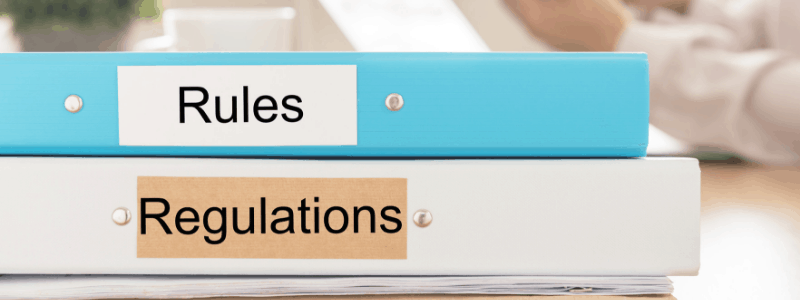
Jason Pratt
North America Managing Director @ Skai

Jason Pratt
North America Managing Director @ Skai
Marketing regulations are on the horizon when it comes to protecting consumer data. Although advertising isn’t so regulated, Skai’s Jason Pratt compares his experience with regulations in another industry and wonders what might happen if marketing was as regulated as others.

Now that I’m almost a decade into the marketing industry—after having spent nearly two decades in the architecture, engineering, and construction (AEC) technology industry—I think it’s worth sharing some insights about the similarities and differences I’ve seen.
AEC is an old profession (the second-oldest, is the old joke.) The world has had architects and builders for as long as we’ve been serious about building. The practices and techniques are literally ancient, and even though the materials are modern as are the design & construction methods, the way buildings get built has not fundamentally changed much, reassuringly.
Marketing is the third-oldest? I don’t know, but it’s also pretty established. When commerce took off in the late 18th century, ads weren’t far behind. And while everything about advertising is changing, the basic function of an ad—to engage a potential buyer and somehow persuade that buyer—hasn’t changed at all. Like buildings, all the technology around the things actually produced (the ads, or the buildings) are different, but their function is still exactly the same.
There are some differences though. Builders are risk-averse! People get seriously hurt if buildings don’t stand up, so it’s wise not to be too aggressive in pushing the limits of a structure. Just make sure it stands there. Don’t get crazy, just play it safe.
Marketers are risk-loving! Taking smart risks gets you noticed. Pushing the envelope with creative, media, and message can give big rewards to the advertiser or agency. Let’s try it! Never been done! Those aren’t things you hear too much in the world of building and engineering. Risks are carefully measured in construction, they’re almost looked for in advertising.

Here’s another difference: buildings are highly regulated! Permits, certifications, licenses to practice, and yes lawsuits are all part of the building industry. Everyone in that industry knows that it’s all being carefully watched, that mistakes can lead to big costs and legal trouble, and that everyone they’re talking with about a building project is professional and capable.
Comparatively, ads are almost not regulated at all! Sure there are FTC rules about truth-in-advertising, and a few regulated categories such as firearms, drugs, alcohol, adult products, etc. But outside of that, it’s pretty much a freewheeling, laissez-faire environment for martech companies, publishers, audience data providers, and everyone else. We are starting to see that changing with GDPR and so forth, but as of yet, relative to buildings, ads themselves are highly unregulated.
For one thing, the general trend in business is for things to start out open and free-market, but then as the bad stuff starts to happen, the public, the government, and the industry itself (sometimes) start to call for more regulation to protect public safety.
Building safety is obvious; ad safety has more to do with data privacy and targeting but is still about safety. Governments see problems and respond to them, licensing and accreditation programs appear, permits and regulations begin to show up, and the hope is that safety comes with it. We’re in the early phases of this in marketing. Let’s see if it continues, but it sure looks like it will. Facebook, Google, and others are working hard to self-regulate to avoid being subjected to regulation that would harm them too much, or miss the mark. There sure is a lot of talk about regulating Big Tech these days.

If it all comes to pass as it did in the building industry, you might see a situation where marketers are required to have a state or federal license in order to buy advertising. You might have to have an accredited degree first, in order to apply for and get that license (which would tend to raise the value of a marketing degree, all else being equal.) Martech providers might have to be available for regular or semi-regular inspections of their practices to ensure they’re protecting user data appropriately. Fines would be levied by a United States Justice Department “Bureau of Advertising & Marketing” created expressly for the purpose of handling violations and transgressions by advertisers.
What will happen to the legendary creativity and innovation in advertising in that environment? Will marketers still feel as free to experiment with new technologies and techniques that push advertising forward?
My bet is we’ll find out here pretty soon.
Michael Faraday, the inventor, was famously showing the English prime minister William Gladstone an electromagnetic device on a tour through his laboratory. Gladstone asked, “What good is that thing?” To which Faraday replied, “I don’t know yet, but I know that one day you will find a way to regulate it.”
We use cookies on our website. Some of them are essential, while others help us to improve this website and your experience.
Here you will find an overview of all cookies used. You can give your consent to whole categories or display further information and select certain cookies.